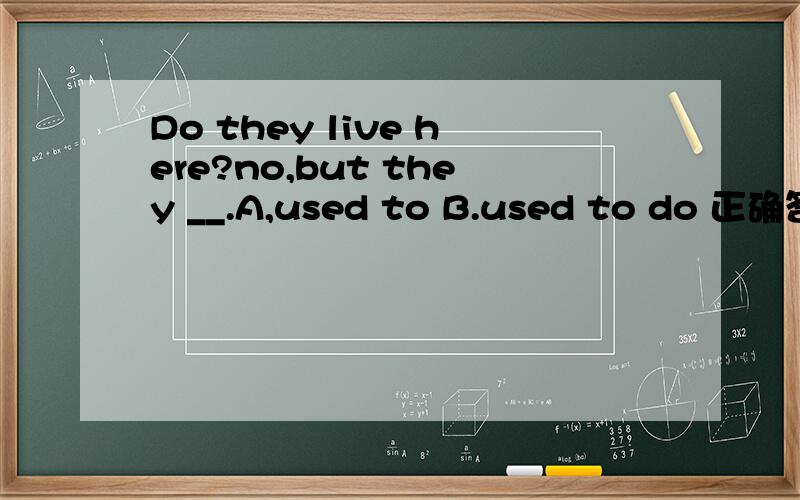Do they live here?no,but they __.A,used to B.used to do 正确答案为A,为何B不行?
来源:学生作业帮助网 编辑:作业帮 时间:2024/11/16 14:25:30

Do they live here?no,but they __.A,used to B.used to do 正确答案为A,为何B不行?
Do they live here?no,but they __.A,used to B.used to do 正确答案为A,为何B不行?
Do they live here?no,but they __.A,used to B.used to do 正确答案为A,为何B不行?
您好,选A
这里涉及到动词省略的情况
1)当原句中的主要动词为do(did)时,在后文中可省略到do(did)之前
如例句: Do they live here? no, but they uesd to (live here)
2)当原句中的主要动词为be(am is are/ was were )是,我们省略到be为止,
Is he a teacher? No,he is not.But he used to be (a teacher)
3)当原句中的主要动词为完成时代(have/had done )时,和第一种一样省略到done之前
如 has Jim got to the school? I hope that he has (got to the school)
译:吉姆到学校了吗?我希望他到了.
4)当原句中的主要动词为完成时态(have/had been )时,和第二种一样,省略到been为止
如 He must have been angry . ---I am not sure .he might have been (angry)
译:他刚才肯定很生气. ----我不确定.可能吧.
希望能帮到您
ps:括号里是省略的成分,省略是为了语言的简洁,
当然前提是不产生歧义,如果会产生歧义的话,就不要省略了
省略形式,记住就行。
再如,where to?(你要到那里去?)而习惯上不说where to go?这已经不是语法的问题了。
首先你得知道used to 的词性用法,在这里used to 不是动词词性,是表示习惯的和 always、oftensometimes差不多
used to do 过去常常 回答句是they used to live here。省略了不定式后面的动词live